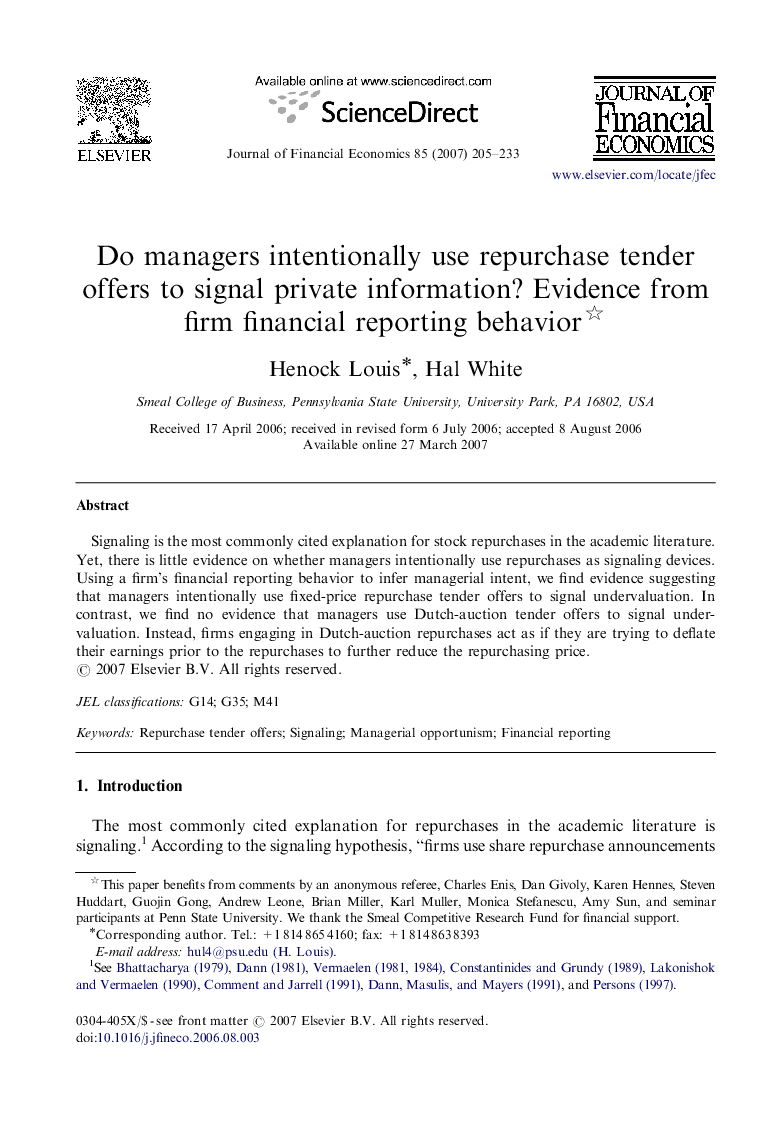| Article ID | Journal | Published Year | Pages | File Type |
|---|---|---|---|---|
| 959918 | Journal of Financial Economics | 2007 | 29 Pages |
Abstract
Signaling is the most commonly cited explanation for stock repurchases in the academic literature. Yet, there is little evidence on whether managers intentionally use repurchases as signaling devices. Using a firm's financial reporting behavior to infer managerial intent, we find evidence suggesting that managers intentionally use fixed-price repurchase tender offers to signal undervaluation. In contrast, we find no evidence that managers use Dutch-auction tender offers to signal undervaluation. Instead, firms engaging in Dutch-auction repurchases act as if they are trying to deflate their earnings prior to the repurchases to further reduce the repurchasing price.
Related Topics
Social Sciences and Humanities
Business, Management and Accounting
Accounting
Authors
Henock Louis, Hal White,
